
Amy Rigby: “It’s great to have a big backlog of songs to choose from, but there’s a responsibility to give them a life outside of the writing process.” Photo: Bob Krasner
The iconic mod housewife is back with an album that finds her songwriting as resolute, humorous, and insightful as ever
Amy Rigby is a singer-songwriter with a back story as riveting as the tales she weaves through her music. Starting in the mid-1980s with the pre-Americana/country band Last Roundup, she went on to co-found NYC folk-pop trio The Shams. After that band’s demise, Rigby launched her solo career with impressive debut Diary Of A Mod Housewife – providing an early glimpse of her astute lyrical voice. A solo artist with a strong DIY ethic, she has also branched out into different types of writing. Her blog posts remain a constantly profound and entertaining read, and her memoir Girl To City follows her journey from Elton John fan in the suburbs of Pittsburgh to becoming a cult artist living in New York.
Now comes new album, Hang In There With Me. Its 11 songs providing reflections on mortality, aging, and resilience, and were recorded at home in upstate NY with her husband, frequent collaborator and producer, Wreckless Eric. As ever, Rigby expertly balances humour with clear-sighted wisdom, often within the same line, and leaves the listener chuckling to themselves as they gain a deeper understanding of the life of this consistently compelling songwriter.
We recently caught up with Rigby in her new Norfolk home to learn a little more about how the record came together…
More interviews with hit songwriters
Is there a typical way that songs first come to you?
“It’s usually lyrics and music kind of at the same time – a rhythm and maybe a melody that usually goes with an opening phrase, or an idea that that I’ve written down in a notebook or something, and then I’m waiting for that opening phrase. Usually it’s that first line, and if I can get that first line rolling, and it intrigues me enough, I can usually follow it through to the end.”
And, from that original idea to the end point, does that that happen quite quickly?
“It can vary. So my album The Old Guys, the title track was from something I’d written in a notebook, months before. That was, ‘We’ve become the old guys,’ and it came from talking to friends and was based on a conversation. I kind of knew that’s what that album had to be, and that had to be a title track. So that one was kind of different, because I sat down to write that song and grabbed some lines out of the air.
“A lot of times, things come to me in transit. In the States, I did a huge amount of driving, and I wonder what it’s going to be like being over here in England. I will drive, but it’s a very different kind of driving. In America, it’s left-hand drive. I write with my right hand; I have a notebook on the seat next to me. Wide open spaces on the road and you’re just kicking back. Here it feels so intense. The roads are narrow, people are right on top of you, and I’m on the right side of the car.”
It sounds like you’re someone who writes all the time, rather than needing a project to write for?
“Hang In There With Me took a couple years to get it all together, due to COVID and the fallout and things going on in my own life. I have a backlog of songs now that came over the course of the couple years it took to to get all of those recorded, and a couple of the ones I recorded for the album ended up on the cutting room floor.

Amy Rigby: “I’ve played a huge amount of live gigs over the course of my music life and have found it always helped to have a good funny song to break the ice with strangers in the audience.” Photo: Bob Krasner
“It was an interesting time to be making an album. I had two really good songs that I felt super proud of, but I felt like I couldn’t put them on the album. They felt too tied to the pandemic and I didn’t want to do a pandemic-era record. I wanted it to be more timeless, I guess, so I had to make that hard decision. Sometimes they feel good to play live, but to encase them in that whole album experience didn’t feel right.
“I do keep writing all the time, but I write a lot less songs than I used to. I do more prose writing and essays, and sometimes that will actually lead to writing songs. I’ve had a blog for years that’s now on Substack and I’ve turned it into a podcast. So a lot of times I’ll need a song in the middle of it, or at the end, and I’ve written a couple songs for that and it feels like a good exercise, or a good way to to keep writing.”
Do you approach prose and song lyrics in the same way or is it completely different?
“In a way, it’s a little bit the same, because if I am thinking of a theme or a scene to write about, I go at it the same way as writing a song – I’m just gonna see it through and will keep going till I finish it. I’m like that with songs. If I don’t crank it all out, I don’t come back to things that often, like little fragments. With songs, it’s great to have a big backlog of songs to choose from, but there’s a responsibility to give them a life outside of the writing process.
“With prose writing, I’m a little more content… I’ve written a blog for 20 years, and there’s so much writing out there. I look back and go, ‘I literally don’t remember writing this,’ but it said something at the time. Whereas with songs, if it meant something while you were writing it, you want to keep it alive and that feels like a big responsibility.
“I’ve already got the 11 songs on the album and another eight that are waiting in the wings. That’s not to say if some flash of inspiration came I’d shut the door, but I won’t look for it. I will say though, anytime I do write something, no matter how big a backlog there is, it is the greatest feeling in the world.”
You say you don’t tend to come back to things. Does that mean you don’t edit your songs too much once you’ve got them down on the paper?
“No, not once I’ve kind of gotten it. Usually, I’ll make a demo right away, either on my phone or on GarageBand, and kind of flesh it out a little bit. I can still change things if I’m actually going into the studio to do a serious recording. For example, on Hang In There With Me, the song The Farewell Tour, that went through a little bit of a change musically, and the pronouns changed. I changed it from being about me to watching somebody else going through a breakup, not talking about it as if it was myself. Little things like that can change.
“Sometimes, in making a record, there’ll be a line that I think is like, ‘Oh, this is the point of the whole’ and then I’ll leave the line out, like. There’s this song, Oh, Anjali on the album, and the title line, ‘Hang in there with me,’ is in that song. But the first time it comes around, I decided to leave it out. I don’t say it until the second time that it goes to that part of the song. So I will change things a bit, but I don’t like go re-work words and images, maybe I should.”

Amy Rigby: “The great thing about writing is you don’t know where you’re going to end up when you start.” Photo: Bob Krasner
Your lyrics have that great balance where something is both humorous and poignant at the same time. But the humour never seems to be so overwhelming that it becomes a joke song. Is that a knack that you’ve always had or one that you’ve worked on?
“Maybe it developed or maybe it was always there, but I probably tried to write more serious songs when I was first getting started, because humorous elements of writing maybe aren’t taken as seriously. I’ve played a huge amount of live gigs over the course of my music life and have found it always helped to have a good funny song to break the ice with strangers in the audience, or even for myself. I would immediately feel more comfortable if I could make a joke in song.
“So probably intentionally that come out more, but you never want it to be a novelty song. Not that there’s anything wrong with those, but something that had more depth. I didn’t want it to be like a shallow joke. I’ve always loved Loudon Wainwright, he was a master of that; you’re laughing and crying at the same time.
“But it is fun sometimes to crank out a funny song that really has no redeeming quality. I have one called I Hate Every Bone In Her Body But Mine. It’s sung from a man’s point of view, but a man could never get away with singing it, which seems kind of unfair, but that’s just how it is.
What else can you tell us about that one?
“I wrote it when I lived in Nashville. It is very much a Nashville kind of song where all the rhymes, all the lines, have to lead up to that point of the song. But that whole idea of writing to the title, I always try to go further than that. The great thing about writing is you don’t know where you’re going to end up when you start. So if you have this whole concept in mind, and all you’re doing is trying to write to prove that point, then, for me, I haven’t achieved anything.
“It’s like that when I write for my Substack and stuff too. The last one I wrote was about the garbage bins. It might be about that when I start but, in writing about things that might seem humorous, or not that grand or deep, it will usually help me find what’s really at the core of what I wanted to communicate.”
Is Dylan In Dubuque an example of that, in that in that it’s, on the face of it, it’s a very specific moment in history, but it’s actually, you’ve taken it and turned it into something a bit more personal?
“I think so. I didn’t think when I started out that I was writing a historical recreation, like The Battle Of New Orleans or something. It wasn’t gonna tell you exactly what happened, but it was a jumping off point. And also it was a little bit of fiction writing, I guess, where you’re inhabiting this other character.
“It was a way to project onto this very important figure to me, Bob Dylan, and talking about something I knew that happened with him, but I’m projecting myself into his place and it’s giving me some kind of strength, imagining myself in the eye of the storm like he was.
“But at the same time, why I love a lot of Dylan’s lyrics is I don’t feel like he fussed over them, and I didn’t choose every word with care. Phrases that have been with you all your life come at you and you grab them and don’t overthink what it even is. You let them come and then they build up and and you put them next to each other, and the juxtaposition of certain turns of phrase might feel like something new when they’re next to each other.”

Amy Rigby: “I don’t see it as my late period, but maybe it’s the beginning of my early late period.” Photo: Bert Eke
Any other song that you could pick from the album that you kind of think has a nice lyric, or you’re particularly pleased with how it came out?
“I really do like all the songs on the album. But I like Bricks a lot. Maybe along the same lines as the Dylan song, it’s imagining this character going through a story. It felt like a little bit of a revenge fantasy for me, something that had been buried that I got to resolve; the end of a relationship with a bad person. Pretty much anyone I’ve ever had a relationship with, I’ve ended being friends with. But there’s some people in the world that just aren’t good. So anyway, I got to kill the person off and it felt very satisfying.
“That was cool, because that was a song prompt from this song camp in Michigan that I’ve been an instructor/coach at for a couple years. Most of the people who come to the camp are super-accomplished writers and musicians already. They don’t need you to go, ‘Here’s a verse and here’s a chorus.’ They’re really good. The guy who runs it writes out these very detailed song prompts for everybody. He’ll trawl our social media to see what everybody’s into and each one is a little short story that he writes and gives to you. There’s a theme for all of them and it was Home Depot, and everything was a DIY kind of thing, but very creative and fleshed out as a little story.
“Mine was about, ‘I started this patio when we were together, but now we’re broken up, you’ve left me with a pile of bricks in the corner of the yard.’ It gave me something that I would not have thought of at all, and it turned into this song. I could see it all in my head, about this woman doing this DIY project herself, and this guy that kept coming back and wanting to get back together. Eventually, he’s buried under the patio. That one felt like solving an equation, it was very satisfying.”
How do you think the album fits in with your overall body of work and is that something you ever consider?
“I was doing an interview with someone and I think they characterized it using the phrase, ‘Late career,’ but he was being very complimentary. Thinking about that makes me go… I love Ian Hunter from Mott The Hoople. He’s 85 and he just put out two albums. He still writes great songs. And at the same time, maybe part of me was a little relieved when I read that. Like, I’m heading into the swan song years.
“I don’t feel like I needed to have a resurgence, because I never stopped. I don’t think it’s a return to form, because I don’t think I was bad. They say when you get to be 65, you’re in the youth of your old age. Maybe it’s something like that. I don’t see it as my late period, but maybe it’s the beginning of my early late period.
“I feel like it’s a strong collection of songs and a good addition to my body of work that. At this point, I don’t know what I would have to do to alienate the people who supported and followed me, I would have to do something really crazy and awful.”



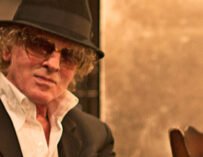
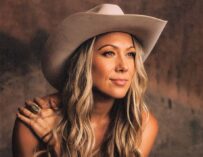


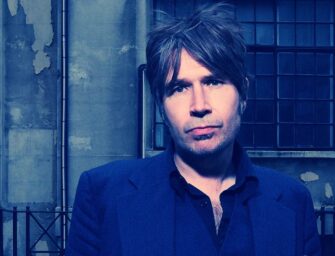

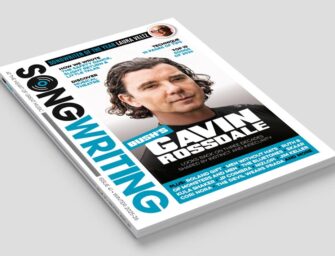
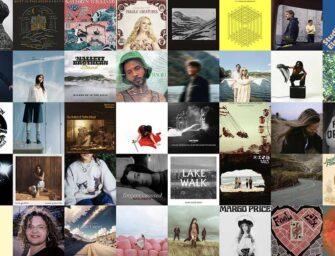
![Interview: Jessie Jo Dillon [2025]](https://www.songwritingmagazine.co.uk/wp-content/uploads/jessie-jo-dillon-2-by-libby-danforth-335x256.jpg)























Related Articles